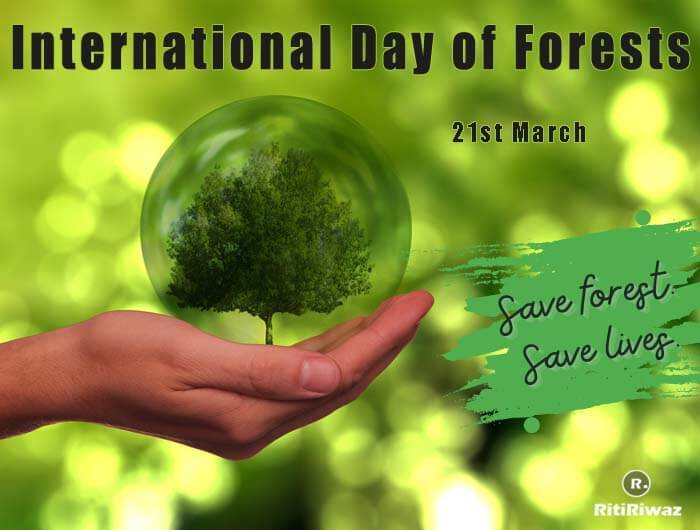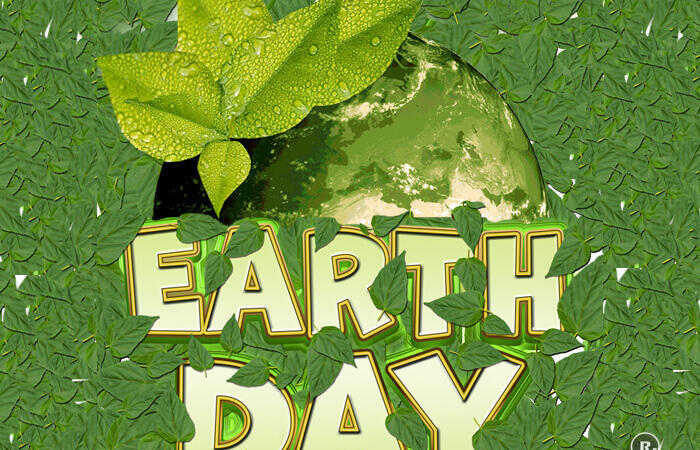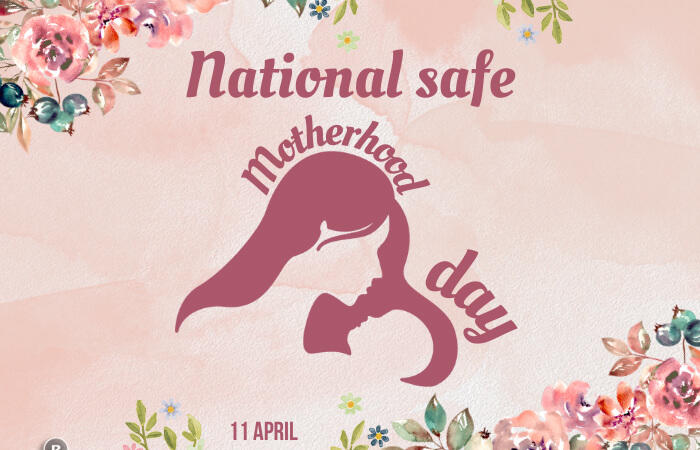International Day of Forests – 21st March

International Day of Forests (IDF) is observed on 21st March, since its proclamation by the United Nations General Assembly on November 28th, 2012. Hence the first International Day of Forests was observed on 21st March 2013, since then it is being celebrated annually to raise awareness about all types of forests and to protect them.
Various United Nations organizations like UNFF (United Nations Forum on Forests) and FAO (Food and Agriculture Organization of the United Nations) facilitates the events. The agencies collaborate with governments, CPF (Collaborative Partnership on Forests), and other relevant organizations to celebrate the “International Day of Forests”. The Day celebrates and raises awareness of the importance of all types of forests and trees to balance the life cycle on the earth for current and future generations.
According to the UN, “forests, their sustainable management, and exploitation, including fragile forest ecosystems, are fundamental to combating climate change, so they contribute significantly to the benefit of present and future generations. Forests also play a role fundamental in the eradication of poverty and the achievement of internationally agreed development goals, including the Sustainable Development Goals (SDGs)”.
The theme for International Day of Forests 2023 was “Forests and health.”
History
Prior to the International Day of Forests, similar observations existed, but they were held on different days. One of the first forest-related observations was World Forestry Day established in November 1971 by the United Nations Food and Agriculture Organization. The other observation was Forest Day, which was observed from 2007 to 2012 by many countries on different days.
After the year 2011 was declared the International Year of Forests, all similar observations were gathered together to form International Day of Forests. This day features mass events raising awareness about the importance of forests in our life.
Why Forest are important
We all know that we could not survive without forests; they provide the oxygen we breathe and they take in the carbon dioxide we emit, they provide shelter, tree roots stabilize the soil, and they harbor rich biodiversity and ecological habitats for Earth’s living creatures. And with 7 billion people on the planet, healthy and thriving forests are becoming as increasingly important as they are becoming increasingly threatened.
Forests pull about one-third of all human-caused carbon dioxide emissions from the atmosphere each year. Researchers have calculated that ending deforestation and allowing mature forests to keep growing could enable forests to take up twice as much carbon.
Government agencies, community organizations, and the public are encouraged to promote International Day of Forests activities, which include tree-planting campaigns, exhibitions, and information about the importance of trees and sustainably managed forests.
This global celebration of forests provides a platform to raise awareness of the importance of all types of woodlands and trees, and celebrate the ways in which they sustain and protect us.
If you’re ambitious, plant a tree! But there are even simpler actions too – conserve paper by only printing what is needed, use recycled paper, or print double-sided. One of the best ways for schools and communities to actively embrace International Day of Forests is by encouraging tree planting activities.
5 tips to take care of forests
1. Knowing and earning about forests you can understand their role in society and their environmental and economic importance. For doing so, you can check the internet and libraries, always keeping in mind that they are reliable sources. In the future, the UN emphasizes, preserving the forests will be fundamental for the planet to be able to supply the living beings and human beings that will inhabit Earth. It is expected that by 2030, the population will have reached 8500 million people.
2. It is never too early nor too late to learn about forests and how to care for them. Promoting early education will allow children to become adults aware of the benefits that ecosystems offer. The UN points out that education is a tool for young people and adults to learn how to sustainably manage forests.
3. Learning about forests should be a joint task of different sectors. That is why at the state level, policies that allow scientific, social, and community research must be implemented to consolidate effective strategies and curb environmental problems such as deforestation and climate change.
4. Access to education must be the same for everyone regardless of gender, sex, race, economic conditions, etc. Sustainably managing natural resources is not an exclusive task of men or women, on the contrary, it is a joint effort of all human beings.
5. Technology should be seen as a tool that empowers and helps traditional wisdom to care for, protect, and sustainably use forests and the resources found there. Technological progress should not be separated from traditional knowledge. So try to mix traditional knowledge with modern knowledge.
Suggested Read: Important Days In March






